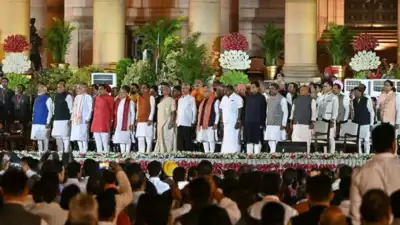New Delhi, June 10: For the first time in India’s history, no Muslim Member of Parliament (MP) has been sworn in as a minister following the recent general elections. This development marks a significant departure from tradition, where every council of ministers since Independence included at least one Muslim representative.
The outgoing council of ministers did not have a Muslim member after Mukhtar Abbas Naqvi’s term ended without re-election to the Rajya Sabha. In previous cabinets, notable figures like Najma Heptulla and Mukhtar Abbas Naqvi served as minority affairs ministers during Narendra Modi’s first and second terms, respectively.
One primary reason for the absence of Muslim ministers in the new cabinet is the lack of Muslim MPs from the National Democratic Alliance (NDA) allies in the 18th Lok Sabha. Out of the 24 Muslim MPs elected to the lower house, 21 belong to the INDIA bloc. The remaining three are Asaduddin Owaisi of the All India Majlis-e-Ittehadul Muslimeen and two independents, Abdul Rashid Sheikh (Engineer Rashid) and Mohmad Haneefa from Jammu and Kashmir.
Historically, cabinets have included multiple Muslim ministers. For instance, the councils of ministers in 2004 and 2009 had four and five Muslim MPs, respectively. Even the Atal Bihari Vajpayee-led government in 1999 included two Muslim ministers, Shahnawaz Hussain and Omar Abdullah, with Naqvi serving as minister of state in 1998.
This shift highlights a changing political landscape and raises questions about minority representation in the current government. As the new administration takes shape, the implications of this unprecedented absence will likely be a topic of significant discussion and analysis.




